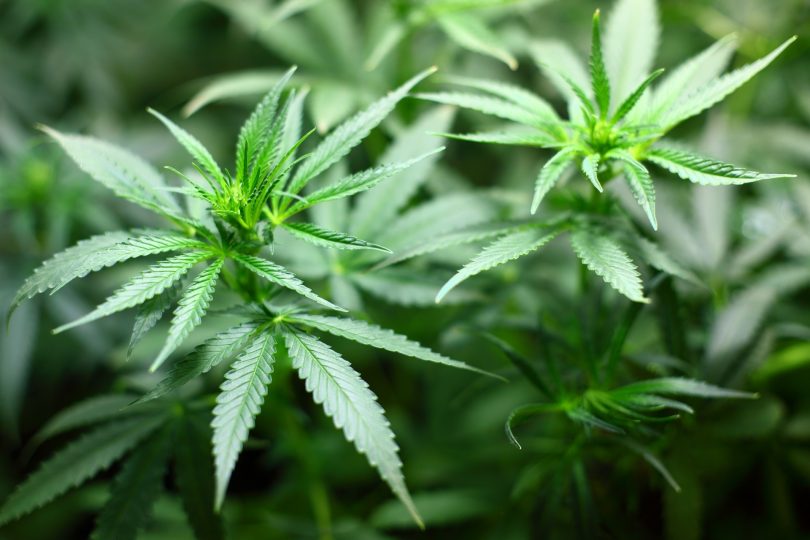The opioid epidemic has plagued the US over the recent past. Every day in the US, an average of 130 people die from an opioid overdose. From 1999 to 2017, the number of opioid overdose deaths increased six-fold. Although the US accounts for only 5 percent of the world’s population, it uses about 80 percent of the global opioid supply.
Many of those who become hooked on opioids do so as a result of chronic pain, whether from an acute injury, an illness, or from chronic overuse over time. Many start off innocently being prescribed prescription opioid medication in an effort to combat daily pain.
But opioids are highly addictive, and it doesn’t take much to get addicted to these powerful painkillers.
Despite making efforts to combat their addiction, there is still chronic pain to deal with following treatment for addiction. Clearly, opioids cannot be a source for pain relief for those with a history of opioid addiction, or relapse would almost certainly ensue.
So, what can chronic pain sufferers who have once been addicted to opioids do to alleviate their chronic pain without having to turn to prescription painkillers?
CBD as an Alternative for Pain Relief
People who suffer from chronic pain and who have a substance abuse issue with opioids may have a more natural and safer alternative to opioids to help manage their pain: CBD.
Cannabidiol (CBD) – a cannabinoid in the cannabis plant – has been shown to have a myriad of miraculous medicinal properties. Studies have shown that CBD doesn’t only alleviate anxiety, reduce inflammation, and combat epileptic seizures, but it can also serve as a potent painkiller. [1]
CBD can be such an effective pain killer that it may be able to completely substitute prescription pain medication altogether. In fact, there is a growing school of evidence that supports the use of CBD and medical cannabis as a compliment or even a substitute for opioids to treat chronic pain. [2]
Further, cannabinoids might even play a role in preventing people from becoming dependent on opioids to alleviate their pain. [3]
Is CBD a Safe Alternative to Opioids?
Some might wonder if CBD is safe to take over the long haul, especially considering the fact that it comes from the cannabis plant. There may still be the fear that prolonged use of cannabis can have negative implications over the long term. But studies have shown that the use of cannabinoids appears to be safe.
In fact, one particular study noted that the use of cannabis for medicinal purposes was shown to not only reduce pain, but also even improve cognitive function and boost overall quality of life among study participants over a one-year period. [4]
Compare that to the potential side effects of opioid use, which can include: [5]
- Drowsiness
- Paranoia
- Respiratory depression
- Nausea
- Addiction
- Overdose
- Coma
- Death
Cannabis seems to pose much less of a risk in terms of toxicity while still offering comparable pain relief as opioids.
Those who continue to deal with pain on a daily basis and have had issues with dependence on opioids in the past may find CBD a viable alternative to addictive opioids.
References:
- Hill, K.P., et al, “Cannabis and Pain: A Clinical Review“, Cannabis Cannabinoid Res. 2017; 2(1): 96–104, doi: 10.1089/can.2017.0017, [Timed Cited = 26; Journal Impact Factor = N/A].
- Reiman, A., et al, “Cannabis as a Substitute for Opioid-Based Pain Medication: Patient Self-Report“, Cannabis Cannabinoid Res. 2017; 2(1): 160–166, doi: 10.1089/can.2017.0012, [Timed Cited = 45; Journal Impact Factor = N/A].
- Lucas, P., “Cannabis as an adjunct to or substitute for opiates in the treatment of chronic pain“, J Psychoactive Drugs. 2012 Apr-Jun;44(2):125-33, [Timed Cited = 88; Journal Impact Factor = N/A].
- Ware, M.A., et al, “Cannabis for the Management of Pain: Assessment of Safety Study“, Journal of Pain, 2015, doi: 10.1016/2015.07.014, [Timed Cited = 98; Journal Impact Factor = 4.519].
- Baldini, A. et al, “A Review of Potential Adverse Effects of Long-Term Opioid Therapy: A Practitioner’s Guide“, Prim Care Companion CNS Disord. 2012; 14(3), doi: 10.4088/PCC.11m01326, [Timed Cited = 109; Journal Impact Factor = N/A].










